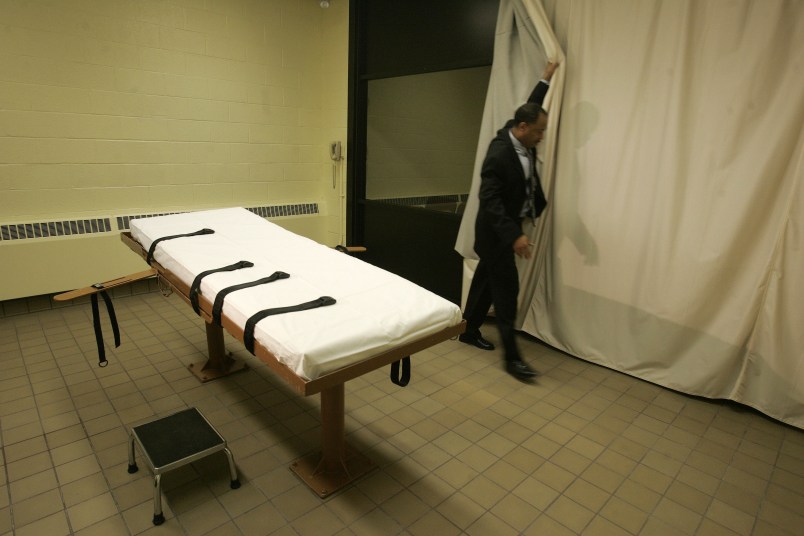HARTFORD, Conn. (AP) — Connecticut’s highest court on Thursday overturned the death penalty in the state, saying it’s unconstitutional.
The ruling by a divided court, 4-3, means the 11 men on the state’s death row would no longer be subject to execution orders. Those inmates include Joshua Komisarjevsky and Steven Hayes, who were sentenced to die for killing a mother and her two daughters in a 2007 home invasion in Cheshire.
The state had passed a law in April 2012 to repeal the death penalty only for future crimes.
The ruling comes in an appeal from Eduardo Santiago, whose attorneys had argued that any execution carried out after repeal would constitute cruel and unusual punishment. Santiago faced the possibility of lethal injection for a 2000 murder-for-hire killing in West Hartford.
The repeal eliminated the death penalty while setting life in prison without the possibility of release as the punishment for crimes formerly considered capital offenses.
It was passed after Komisarjevsky and Hayes were sentenced to lethal injection for killing a mother and her two daughters in a 2007 home invasion in Cheshire that made national headlines.
Santiago was sentenced to lethal injection in 2005 for the murder-for-hire killing of 45-year-old Joseph Niwinski. But the state Supreme Court overturned the death sentence and ordered a new penalty phase in 2012, saying the trial judge wrongly withheld key evidence from the jury regarding the severe abuse Santiago suffered while growing up.
The ruling came just weeks after lawmakers passed the death-penalty repeal.
Assistant Public Defender Mark Rademacher argued any new death sentence would violate Santiago’s constitutional rights to equal protection and due process. He said it would be wrong for some people to face the death penalty while others face life in prison for similar murders.
He told the court that Connecticut had declared its opposition to the death penalty and it wouldn’t make sense to execute anybody now.
Senior Assistant State’s Attorney Harry Weller had argued there were no constitutional problems with the new law, and death-row inmates simply face a penalty under the statute that was in effect when they were convicted. He also argued that the court could not repeal just part of the new law.
Connecticut has had just one execution since 1960. Serial killer Michael Ross was put to death 2005 after winning a legal fight to end his appeals.
Copyright 2015 The Associated Press. All rights reserved. This material may not be published, broadcast, rewritten or redistributed.







Good for them!
That’s one more State that has clawed it’s way into modern western society.
I was born in Hartford. I am glad to read this.
Life without parole is pretty horrible; some would argue worse than the death penalty.
Yayyyy, Kudos to them